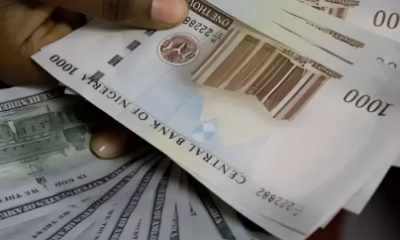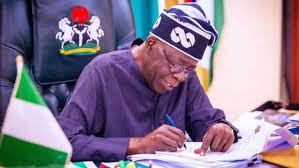In the P2P market, the Naira fell as low as N910 against the dollar on Wednesday morning before moderating to the N902/$ levels.
Short sellers are holding their ground against the naira even as the number of cash held outside banks dropped significantly from N2.26 trillion in June to N2.20 trillion in July.
To stabilize the naira and curb inflation, the CBN has introduced several measures, including raising the banks’ cash reserve ratio (CRR), opening market operations (OMO), and changing the exchange rate regime.
While the market rallied on the news, it appeared to be short-lived support as the local currency subsequently fell against the dollar in the following segments.
READ ALSO: Naira plummets to N900/$1 at parallel market
The Nigerian National Petroleum Company (NNPC) Limited recently announced that it had secured an emergency loan of $3 billion from the African Export-Import Bank (Afreximbank) to stabilize the country’s foreign exchange market.
However, Currency speculation accelerated northward, despite the determination of the CBN to ensure market integrity of the country’s foreign exchange market, with the commencement date of the Price Verification System (PVS) Portal accompanied by Form M application.
The apex bank also announced the operational mechanism of the Bureau De Change Operations in Nigeria to boost participation and liquidity.
In addition, NGX proposes to allow the listing of dollar-denominated bonds and possibly expand into stocks to facilitate easy access to the currency for companies in Africa’s largest economy.
READ ALSO: Naira rebounds against Dollar, gains N95 in 3 days
However, nothing seems to have changed from the real sector’s perspective as the prices of goods and services in Africa’s largest economy have exploded despite the apex ban’s effort to ensure price stability.
The Naira has been falling steadily since FG/CBN announced the Naira float. It lost nearly half its value against the US dollar within 10 weeks of its introduction.
The country’s apex bank reaffirmed its commitment to achieving price stability and exchange rate stability, but given the structural and budgetary difficulties the economy is experiencing, economists have expressed scepticism about the CBN’s capacity on its limited FX ammunition.


 Health5 days ago
Health5 days ago
 Entertainment6 days ago
Entertainment6 days ago
 Crime5 days ago
Crime5 days ago
 Education7 days ago
Education7 days ago
 Health7 days ago
Health7 days ago
 Comments and Issues6 days ago
Comments and Issues6 days ago
 Football6 days ago
Football6 days ago
 Latest6 days ago
Latest6 days ago












